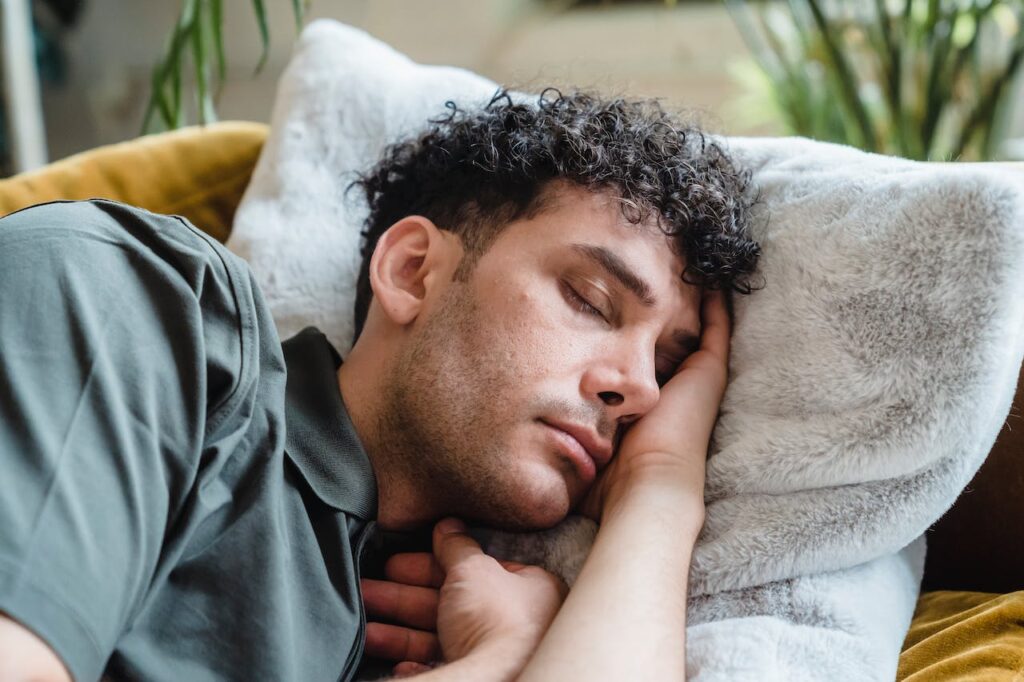
Sleep Apnea Is it Hereditary? Exploring the Genetic Factors
If you have been diagnosed with sleep apnea, you might be wondering what could have caused this issue. Although your healthcare provider has most likely provided you with a list of common causes, you may be wondering if this was something that was passed down to you.
Let’s talk about sleep apnea and discuss whether genetic factors can make you predisposed to this potentially serious condition.
What is Sleep Apnea
Sleep apnea is a relatively common sleep disorder that causes those with it to have frequent pauses in their breathing while they are sleeping. People that suffer from sleep apnea have difficulty staying asleep for long periods of time and may not even know it since these pauses in breathing usually do not fully awaken them. Many people with undiagnosed sleep apnea assume they are breathing normally while they sleep and simply accept waking up tired as a normal part of life.
Over time, sleep apnea can cause significant issues with loud snoring and persistent sleepiness during the daytime. The loud snoring can cause issues if anyone else sleeps within hearing distance of your snores, which can be pretty far if you are snoring due to sleep apnea, leading to members of your household losing sleep as well. Due to the poor quality of sleep, persistent sleepiness and drowsiness can be a major issue for those with sleep apnea, especially if they have to operate machinery or drive while sleep deprived.
There are two main categories of sleep apnea which are obstructive sleep apnea and central sleep apnea.
Related: Nighttime Anxiety: Understanding Worsening Symptoms
Obstructive Sleep Apnea
Obstructive sleep apnea, which is the most common type of sleep apnea, means that there is a physical blockage in your airway as your sleep. This blockage can significantly reduce the airflow to your lungs, which in turn will cause a drop in your oxygen levels. The drop in oxygen levels in your brain will cause your brain to bring you out of sleep just enough so that you can take a normal breath.
In many cases of obstructive sleep apnea, this blockage occurs due to the muscles in your neck, shoulders, and head relaxing, causing pressure that pushes down on your windpipe.
Are you looking to get the most out of your sleep so that you can wake up refreshed and ready to hit the day? Take a look at our selection of CBD products here.
Central Sleep Apnea
Central sleep apnea is caused by a disruption in the communication between your brain and the muscles that are responsible for breathing. This usually occurs due to other underlying medical issues, such as infection of the brainstem or the use of narcotic painkillers, which can depress the ability to breathe.

What Are the Biggest Risk Factors for Sleep Apnea?
There are a few factors that can increase the risk of developing a form of sleep apnea, but here are some of the biggest reasons why people develop it.
Being Overweight
One of the biggest risk factors for sleep apnea is being overweight. This can lead to areas around your neck holding more fat which puts more pressure on your windpipe as you sleep.
Neck Anatomy
Individuals that are born with a narrow airway are at increased risk of developing sleep apnea. Those who have tonsils that are prone to inflammation are also at more risk.
Nasal Congestion
If you are someone that is prone to suffering from allergies, you are also at more risk of developing sleep apnea.
Age
Although people can develop sleep apnea at any age, the chance of it happening becomes higher as people get older. This can be due to adipose or fatty tissue developing around the neck, which can put pressure on your airway while you sleep.
Medical History
There are certain medical conditions that can cause sleep apnea, such as congestive heart failure, diabetes, high blood pressure, and kidney failure.
Congestive heart failure and kidney failure can both cause fluid retention around the tissues in your neck, which will make it more likely that your airway will develop a blockage while you sleep, causing an interruption in your breathing. A history of trauma to the airway or structure of your face can also cause sleep apnea due to the damage and swelling that occurs.
Are you ready to rack out and get enough shut-eye to be productive in the morning? Try our Full Spectrum CBD Gummies before you hit the hay.

Can Sleep Apnea Be Caused By Genetic Factors?
There are quite a few factors that can cause obstructive sleep apnea such as the anatomy of the face, fat distribution throughout the body, and the chance that you will develop medical issues that can raise the risk of sleep apnea.
Genetics plays a huge part in how your face is shaped since you get your looks from your parents. Your genes will dictate the size and shape of your skull, including the bones around your nose that will shape the airway. They also significantly affect how your body takes on fat which can be the reason that airways are blocked.
Final Thoughts
If you are suffering from obstructive sleep apnea, it is possible that it could have been caused, at least in part, by hereditary factors. Your genes determine how your airways are shaped and function, as well as any medical conditions that can cause sleep apnea.
Related: Hemp Gummies vs. CBD Gummies: What to Look for and How to Buy

